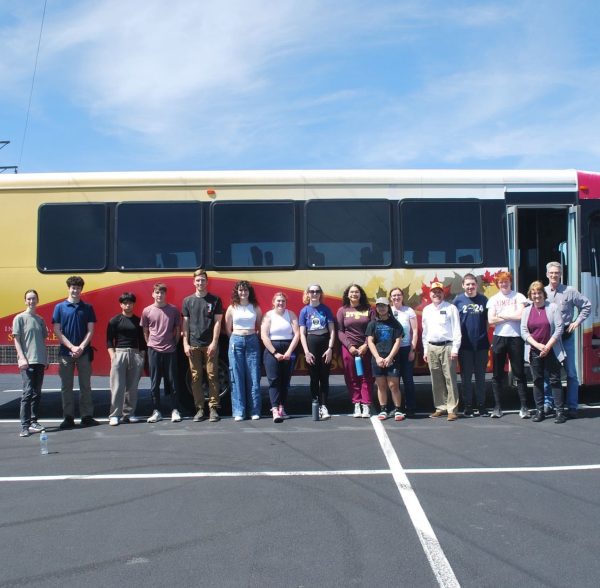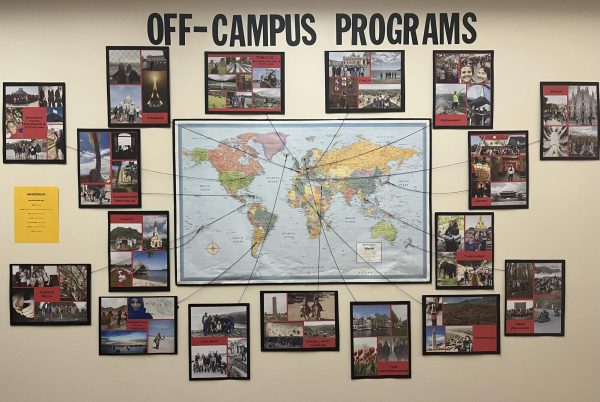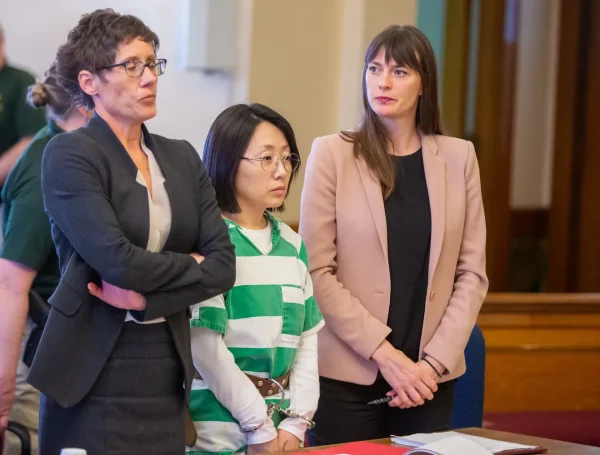Students present at Summer Research Symposium
October 7, 2014
Throughout the summer, 18 Simpson College students participated in research programs related to biology, chemistry or mathematics. These students had the opportunity over the past two weeks to present their research at the Summer Research Symposium.
Students were able to choose whether they wished to present their research as oral presentations or as poster boards. Oral presentations were delivered Sept. 26 and the posters were displayed Oct. 3.
Each student was tasked with choosing a research question, forming a hypothesis and reaching a conclusion.
Amy West, a senior studying environmental science and English, researched how parent birds defend their nests throughout their chicks’ lifespans. She chose her topic because of the personal interest it offered her.
“We have some barn swallows that nest on our porch every year, and it seemed that, with these barn swallows, as the chicks got older, the parents would get more aggressive toward us,” West said.
In her research, West located numerous nests and recorded the reactions parent birds would have in response to her getting close to the nests. She found that the reactions varied among different species and the gender of the parent.
Another student who chose to research animals is Nathan Schneider, who is a senior biology major. He wanted to compare the health of two different habitats, one that had been taken over by an invasive grass species and another with native prairie grass.
According to Schneider, the heath of a habitat can be determined by calculating the diversity and evenness of small animal populations. Healthy habitats support many different species of animals and they would all have relatively similar numbers in their population.
“I would catch the animals and identify which species they were. Then I would put metal ear tags in them that had numbers on them so that I would know if I caught them more than once and wouldn’t recount them,” Schneider said.
In order to catch the animals, Schneider used live traps, baiting them with peanut butter balls. When the animals entered the trap, a trigger would close the door.
“They bite you, but it’s fun. They bit me several times,” Schneider said.
Throughout his research, Schneider caught and handled animals, including rabbits, mice and fowls, 930 times. By the end of the summer term, he had determined while the invasive grass supported a large population, the animals were not diverse. The natural prairie grass habitat was home to a more diverse and even set of species.
“I really got to see how the scientific process works,” Schneider said. “I got to see this project from start to finish.”
Alec McIntosh, sophomore biology and mathematics major, said, “After spending so much time on your project, you almost become obsessed with it. It becomes like your baby.”
McIntosh focused his project on the impact land usage has on algae in freshwater ponds. He sampled the algae from nine ponds based on the amount of human interaction, the vegetation near the pond and the pollution possibilities.
“I love the outdoors and wanted to be able to do some kind of research,” McIntosh said. “Freshmen don’t usually get these opportunities, especially at other colleges, and it was an honor to be able to do it here.”
McIntosh used a trawl net to collect samples of the algae and examined the samples using a microscope. This method presented challenges that encouraged creative thinking.
“It teaches you problem solving skills like no other,” said McIntosh. “It was a good experience and I haven’t ever been challenged like that before.”
McIntosh believes one of the biggest challenges was in presenting his research. He noted that it was difficult to take a topic that had been so heavily researched and focused on and turn it into a short conversation. He believed the presentation did not do his project justice because he had to cover only the vague information.
“You have so much you want to say but only a narrow amount of time to say it,” McIntosh said.
Overall, however, most students found the research experience to be beneficial and were excited to share their work with their audiences at the Summer Research Symposium.
West said, “It went really well. It might have been more helpful to work with a poster board, but I got to present my question and hypothesis.”
“It is a great experience,” McIntosh said. “I encourage anyone to apply for a research program, especially if they want to challenge themselves.”















